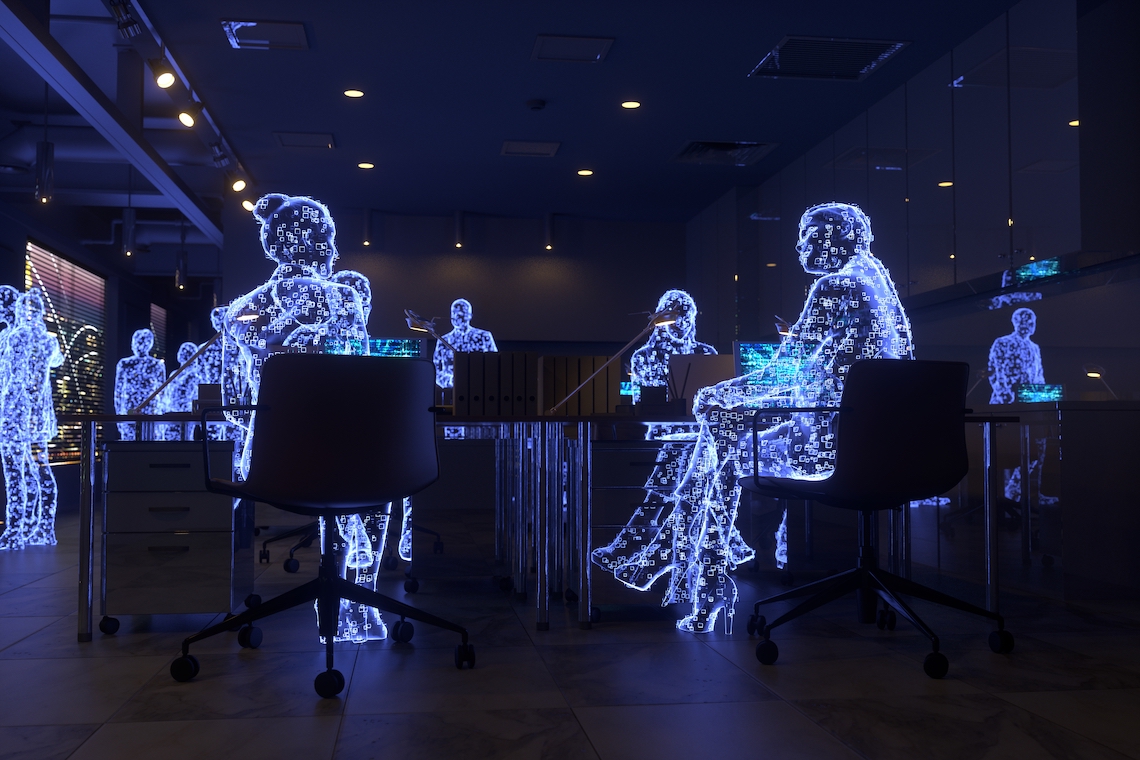Artificial Intelligence (AI) has revolutionised industries worldwide, including Australia. In recent years, businesses have rapidly integrated AI technologies into their workplaces to increase efficiency, streamline processes, and drive innovation. While AI offers numerous advantages, it also comes with inherent risks that can impact employees, organisations, and society as a whole. Organisations need to recognise the importance of responsible AI implementation to mitigate potential harm.
Considerations in the workplace include:
- Job Displacement – One of the most concerning risks of AI adoption is the displacement of jobs. As AI-powered systems automate repetitive tasks, many routine jobs could become redundant. This could lead to unemployment and a significant shift in the workforce landscape. Low-skilled workers, in particular, are vulnerable to this risk, as their roles are more likely to be easily automated by AI algorithms.
- Bias and Discrimination – AI algorithms are only as unbiased as the data they are trained on. If the training data contains inherent biases, the AI system can perpetuate and amplify those biases in decision-making processes. In the workplace context, this could lead to discriminatory practices in hiring, promotions, and performance evaluations. It might exacerbate existing inequalities and adversely affect certain groups, such as women, minorities, or individuals with disabilities.
- Lack of Human Oversight – Relying solely on AI for critical decision-making processes can be problematic. Machines lack the ability to empathise, understand nuances, and grasp the subtleties of human behaviour. When there’s a lack of human oversight, errors or harmful decisions may go unchecked. It is vital to strike a balance between AI automation and human intervention to ensure ethical and responsible outcomes.
- Privacy and Data Security Concerns – AI systems heavily depend on vast amounts of data to function effectively. In the Australian workplace, this data often includes sensitive information about employees and customers. If AI systems are not properly secured, they can become vulnerable to cyberattacks and data breaches, potentially leading to identity theft or misuse of personal information. Employers must prioritise data privacy and invest in robust security measures to safeguard against potential threats.
- Over-reliance – While AI can enhance productivity and efficiency, over-reliance on AI systems can lead to complacency among employees. When individuals rely solely on AI-generated insights, they may become less inclined to think critically, problem-solve, or engage in creative thinking. This overdependence can hinder employees’ growth and development, limiting their ability to adapt to changing work dynamics.
- Ethical Dilemmas – AI often faces ethical dilemmas, especially in workplaces where complex decisions are involved. For instance, should AI be programmed to prioritise profits over employee well-being? How should it handle moral decisions that have no clear-cut answers? Addressing these ethical challenges requires careful consideration, transparency, and collaboration between developers, employers, and employees.
- Lack of Regulation and Governance – As AI rapidly infiltrates Australian workplaces, there is a pressing need for robust regulations and governance frameworks to ensure responsible AI deployment. Without adequate oversight, organisations might prioritise profit over ethical considerations, exacerbating the risks associated with AI implementation. Government and industry bodies must work together to establish guidelines that safeguard employees’ rights, privacy, and well-being.
- Loss of a Human Touch – Incorporating AI into workplace processes may lead to a loss of the human touch in interactions between employees and customers. This can negatively impact customer satisfaction and loyalty, as personalised and empathetic service becomes scarce. Balancing AI automation with maintaining human connections is crucial for fostering positive workplace experiences.
The integration of AI in the Australian workplace presents both incredible opportunities and significant risks. While AI can boost productivity, innovation, and efficiency, it also poses significant challenges. Addressing these risks requires a proactive approach from businesses and policymakers, emphasising responsible AI development, regulation, and governance.
To harness the true potential of AI while minimising its negative consequences, Australian companies must prioritise human-centric approaches, foster continuous learning among employees, and ensure transparent, ethical AI practices. By striking the right balance between AI and human capabilities, Australia can build a future in which AI technologies augment human potential, rather than replacing it.
As a starting point all organisations should formally consider and assesses the risks of AI by including this as risk on Corporate or Strategic Risk registers.
If QRMC can assist your organisation with this process, please contact us for more information.









